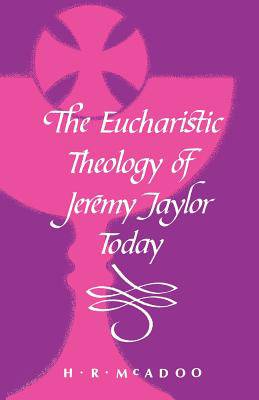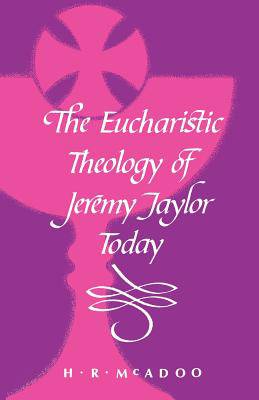
Door een staking bij bpost kan je online bestelling op dit moment iets langer onderweg zijn dan voorzien. Dringend iets nodig? Onze winkels ontvangen jou met open armen!
- Afhalen na 1 uur in een winkel met voorraad
- Gratis thuislevering in België vanaf € 30
- Ruim aanbod met 7 miljoen producten
Door een staking bij bpost kan je online bestelling op dit moment iets langer onderweg zijn dan voorzien. Dringend iets nodig? Onze winkels ontvangen jou met open armen!
- Afhalen na 1 uur in een winkel met voorraad
- Gratis thuislevering in België vanaf € 30
- Ruim aanbod met 7 miljoen producten
Zoeken
Omschrijving
WHY TAYLOR TODAY? Jeremy Taylor is more than a famous figure from the Anglican past for much of what he created theologically remains an ingredient in Anglicanism today. Seen against the background of his own times, he stands out in a period rich in theological ability. Seen from the angle of our times, Taylor commands our attention as a precursor. His Real Presence and Spiritual (1654) anticipates aspects of eucharistic theology in the Lima Report (1982) and in the Final Report(1982) or ARCIC I. His moral theology forms the context for his sacramental theology and forestalls much of the development characteristic of the twentieth-century revolution in that subject. He has moreover the curious capaWy.of appearing to make hirnself at times our contemporary. A man of paradox, both Laudon and liberal, steeped in the great tradition yet: on occasion strangely modern, he persistently defies easy classification. He ts a theologian of affiliations but of no party, holding 'the faith once 'for all delivered' but expounding it with originality, and individuality. Taylor always remains his own man. Deeply and widely learned and enormously productive even throughout the years of national turmoil and amid personal losses, he can be exciting in his handling of themes expressed in that style which has, ensured for him a place in English literature. This book attempts an evakuation of his eucharistic theology - not hitherto examined in depth - which is firmly sited by Taylor within his overall picture of the Christian life.
Specificaties
Betrokkenen
- Auteur(s):
- Uitgeverij:
Inhoud
- Aantal bladzijden:
- 222
- Taal:
- Engels
Eigenschappen
- Productcode (EAN):
- 9781853110047
- Verschijningsdatum:
- 17/01/1989
- Uitvoering:
- Paperback
- Formaat:
- Trade paperback (VS)
- Afmetingen:
- 140 mm x 216 mm
- Gewicht:
- 263 g

Alleen bij Standaard Boekhandel
+ 44 punten op je klantenkaart van Standaard Boekhandel
Beoordelingen
We publiceren alleen reviews die voldoen aan de voorwaarden voor reviews. Bekijk onze voorwaarden voor reviews.











